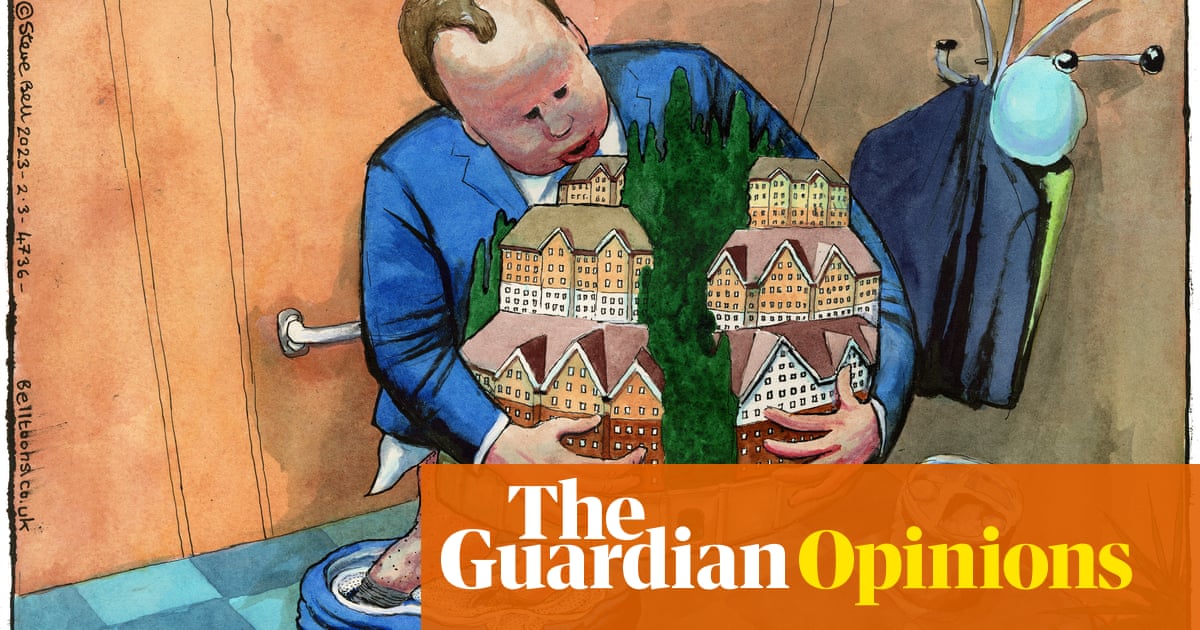
he UK has suffered some of the worst consequences of the pandemic among developed nations, in terms of both deaths and economic disruption. But instead of learning from its mistakes, all the evidence suggests that the British government is trying to rewrite history while the pandemic is still going on.
When the health secretary, Matt Hancock, appeared in front of MPs last week to answer questions about the government’s early handling of the virus, part of the questioning centred on the devastation that the virus had been allowed to wreak in care homes among residents and staff.
While it is genuinely hard to pick the worst failure of the UK’s pandemic response, this has to be a contender. The numbers remain to be fully catalogued and may never be fully known, because testing was in such short supply early on in the pandemic, but the Office for National Statistics estimates 42,000 care home residents in England and Wales have died of Covid. This outcome was entirely predictable in the absence of meaningful infection control.
Care homes are an example of what epidemiologists call a “congregate setting”. These are places where people are gathered together in tight groups, making a lot of contacts and with little ability to distance, guaranteeing the virus a captive audience. Other examples include prisons and cruise ships.
We worry a lot about respiratory viruses in care homes, because they are lethal. During the very early days of the pandemic in China scientists indicated that older people were especially vulnerable to the virus. As a result of these two facts, well known in January and February 2020, care homes were a disaster waiting to happen. However, until the middle of April last year UK hospitals were discharging patients into care homes without requiring that they be tested for Covid first, sparking goodness knows how many introductions, outbreaks and deaths.
Hancock has claimed that only 1.6% of care home outbreaks were seeded from hospitals, citing Public Health England (PHE) research. But the research in question is biased by the fact that to detect an outbreak you need testing, and tests were in short supply over the most serious period of the spring surge in 2020. You cannot detect something if you do not look for it. Nobody is claiming that all outbreaks occurred via this route, but it was a known way the virus could get into vulnerable populations, and action was not taken to stop it. In fact, the same PHE research states that “the majority of these potentially hospital-seeded care home outbreaks were identified in March to mid-April 2020, with none identified from the end of July until September where a few recent cases have emerged”, which suggests that once testing was finally mandated for discharge from hospitals to care homes in mid-April, it was helpful in preventing outbreaks.
Before mid-April, testing was also limited to those with symptoms – which was disastrous, given the potential for unwitting transmission from currently asymptomatic people. Hancock claimed that asymptomatic transmission was not appreciated at the point that decisions were being made, but that is nonsense. The minutes of the Sage meeting held on 28 January dwell on the issue – rightly so because this was one of the most important questions that would have determined what was needed to control the outbreak. The minutes state: “There is limited evidence of asymptomatic transmission, but early indications imply some is occurring.” Did Hancock read this? If so, why did he not recognise that the consequences for the most vulnerable under his care would be catastrophic?
As it happens, a more reasonable explanation for the discharge policy is on offer, but if anything it reflects even less well on the early handling of the virus. The recent experience of the pandemic in northern Italy had made it clear that a serious surge of infections was headed towards the NHS, and planning for that meant that beds needed to be freed up. This surge was the consequence of delaying locking down until after a large wave had become inevitable. Hancock claims that to have taken action earlier would have meant “overruling scientific consensus” – which Stephen Reicher, a member of the independent Scientific Pandemic Insights Group on Behaviours (SPI-B), described as “quite simply untrue”.
When it comes to the consensus, I cannot claim to know the mind of every expert at the time, but I do know that I was very far from alone during February and March 2020 in my very great concern for the UK, which was escalating with every passing day of inaction. As revealed in texts between the prime minister and Dominic Cummings, the former aide warned in March about the seriousness of the situation facing care homes and drew attention to the delay in rolling out testing.
Taken together, this collection of excuses unintentionally reveals the mindset that led to the UK’s abysmal pandemic response throughout 2020. Whenever scientists conveyed the message “We don’t know exactly how bad it is, but it might well be really bad and you should act accordingly,” the political response was: “So you mean it might not be that bad,” and to avoid making hard decisions. Uncertainty is not a reason for inaction, and unpalatable realities cannot be subservient to hopeful fantasies when you are dealing with a pandemic.
Among those realities is the Delta variant, which has just delayed England’s long-promised reopening on 21 June. Even with the successful vaccine rollout, in which the UK has excelled, reopening was always expected to lead to more cases, more hospitalisations and more deaths. The question is how much vaccination blunts those worse outcomes, and if you’re comfortable with that price – because people will still get sick and die, just in fewer numbers. Brilliant and urgent work by scientists with PHE has shown that the Delta variant is more transmissible, with some limited ability to evade vaccination, and is more dangerous. The most recent briefings suggest infection with Delta is about twice as likely to land you in hospital, especially if you are unvaccinated.
Setting a deadline for the end of a pandemic ahead of time is the very definition of offering a needless hostage to fortune. I am hopeful that vaccination will limit the resulting damage from Delta in the UK, even as I feel desperately anxious for those parts of the world not lucky enough to have ready access to vaccines.
Epidemiologists will be the first people to admit that managing a pandemic is extremely difficult. But the UK has not simply made a few errors here and there: there has been a persistent and pathological pattern, exemplified by Hancock, of serious mistakes from which nothing is learned, and which are soon repeated. As a result the country is waking up to yet another false dawn. Close to 130,000 have already lost their lives so far. They deserved better. So does the country.
Dr William Hanage is a professor of the evolution and epidemiology of infectious disease at Harvard












